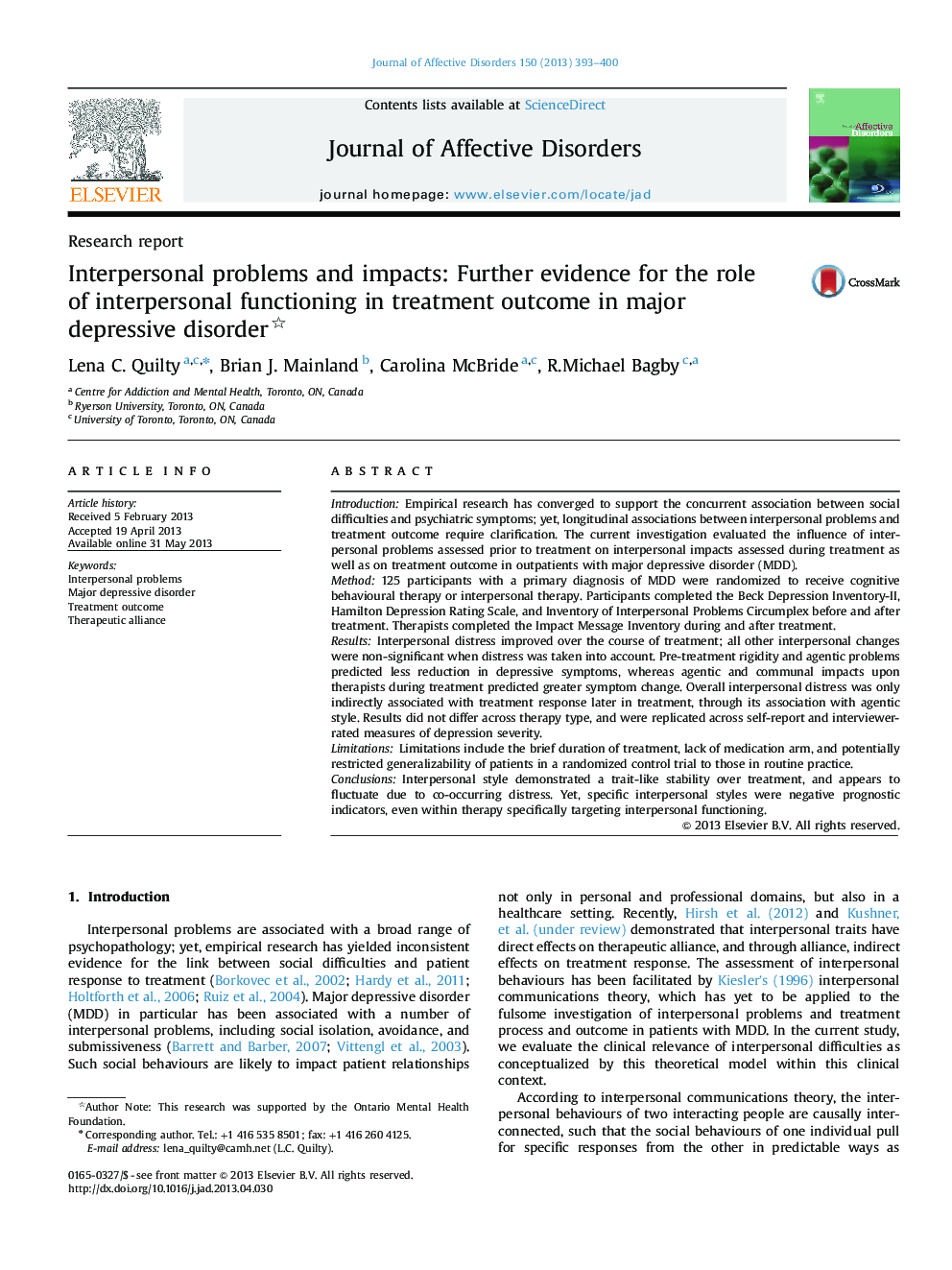| کد مقاله | کد نشریه | سال انتشار | مقاله انگلیسی | نسخه تمام متن |
|---|---|---|---|---|
| 6234260 | 1277557 | 2013 | 8 صفحه PDF | دانلود رایگان |

IntroductionEmpirical research has converged to support the concurrent association between social difficulties and psychiatric symptoms; yet, longitudinal associations between interpersonal problems and treatment outcome require clarification. The current investigation evaluated the influence of interpersonal problems assessed prior to treatment on interpersonal impacts assessed during treatment as well as on treatment outcome in outpatients with major depressive disorder (MDD).Method125 participants with a primary diagnosis of MDD were randomized to receive cognitive behavioural therapy or interpersonal therapy. Participants completed the Beck Depression Inventory-II, Hamilton Depression Rating Scale, and Inventory of Interpersonal Problems Circumplex before and after treatment. Therapists completed the Impact Message Inventory during and after treatment.ResultsInterpersonal distress improved over the course of treatment; all other interpersonal changes were non-significant when distress was taken into account. Pre-treatment rigidity and agentic problems predicted less reduction in depressive symptoms, whereas agentic and communal impacts upon therapists during treatment predicted greater symptom change. Overall interpersonal distress was only indirectly associated with treatment response later in treatment, through its association with agentic style. Results did not differ across therapy type, and were replicated across self-report and interviewer-rated measures of depression severity.LimitationsLimitations include the brief duration of treatment, lack of medication arm, and potentially restricted generalizability of patients in a randomized control trial to those in routine practice.ConclusionsInterpersonal style demonstrated a trait-like stability over treatment, and appears to fluctuate due to co-occurring distress. Yet, specific interpersonal styles were negative prognostic indicators, even within therapy specifically targeting interpersonal functioning.
Journal: Journal of Affective Disorders - Volume 150, Issue 2, 5 September 2013, Pages 393-400